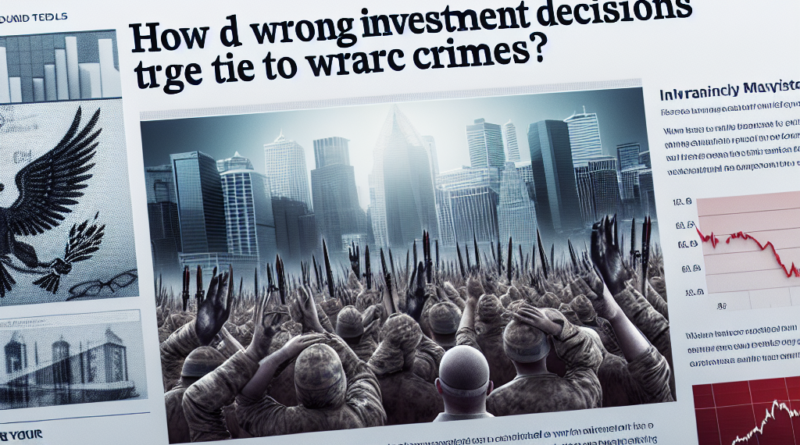The Link Between Poor Investment Decisions and War Crimes
The Influence of Risk Asymmetry Bias on Soldier Behavior
Behavioral finance has shed light on the risk asymmetry bias: a psychological phenomenon that influences individuals’ decisions.
This bias leads people to prefer immediate and known risks over future and uncertain risks.
In other words, individuals are inclined to avoid immediate risks (or losses) at the expense of facing a greater but distant risk in the future.
Behavior in War Contexts
This inclination can partly explain the choice of soldiers to commit war crimes, where the fear of immediate reaction from their superiors outweighs the dread of future legal consequences.
In war contexts, soldiers operate under immense pressures and high-stress situations.
The fear of immediate repercussions from superiors can drive them to commit acts they would otherwise avoid, preferring the risk of facing legal prosecution for war crimes later on.
Link to Prospect Theory
The connection between the asymmetry preference bias and soldier behavior can be examined through the lens of prospect theory, developed by Daniel Kahneman and Amos Tversky.
This theory posits that people evaluate losses and gains asymmetrically: immediate events are perceived as more severe than future ones, which can explain why soldiers, fearing negative reactions from superiors, are more prone to making risky decisions that could have serious legal consequences in the future.
Example in a War Scenario
Imagine a soldier in an armed conflict situation where following a superior’s order implies committing a war crime.
The soldier is aware that refusing to obey the order will result in immediate repercussions.
These immediate, tangible, and certain risks are experienced as more threatening than the abstract and future risk of being accused of war crimes, which may only occur at an indefinite time with uncertain probability.
Group Dynamics and Immediate Pressure
The asymmetry preference bias makes the soldier more inclined to comply with orders, even if they might eventually recognize the illegal and immoral nature of such orders.
This behavior can be further fueled by group dynamics and peer pressure, which reinforce the perception of immediate risk as predominant.
It is interesting to note that this dynamic is not limited to military contexts but can be observed in various fields where decisions are influenced by immediate pressures.
For instance, in corporate settings, employees may make ethically questionable decisions to please superiors and avoid short-term negative consequences, disregarding the risk of future legal sanctions.
Conclusion
The bias of asymmetry preference to risk provides a powerful explanation of why soldiers may be induced to commit war crimes and also explains why investors are not inclined to cut their losses.




